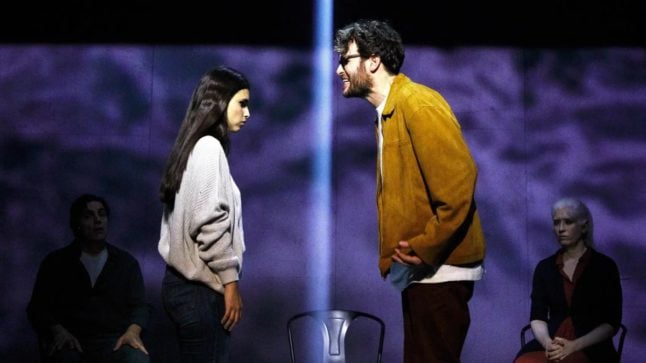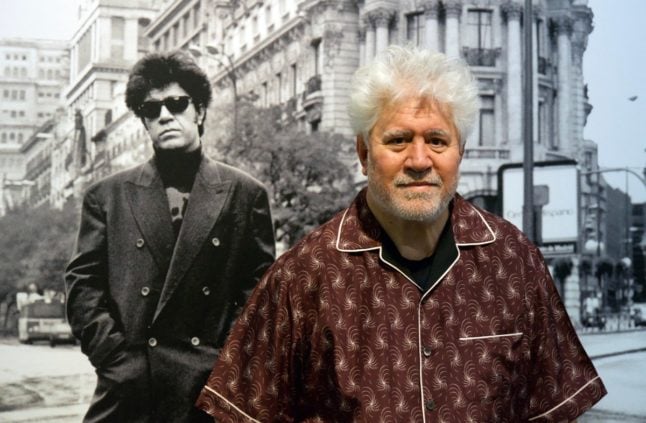Produced by Peruvian director Chela de Ferrari, who has a history of working with people with disabilities, the play debuts on Monday at the prestigious theatre festival in the southern French city of Avignon.
“Chekhov’s characters tend to be looking for some kind of lost paradise… with ambitions which are greater than their own abilities,” De Ferrari told AFP. “I thought these characters could connect very well with a group of blind actors.”
Well-versed in inclusive theatre after staging Shakespeare’s “Hamlet” with Down syndrome actors, she soon turned her attention to another major work, this time by Russian playwright and short story master Chekhov.
She is working with a dozen actors from Spain’s Centro Dramático National theatre company, only two of whom are sighted.
View this post on Instagram
The rest are blind or partially-sighted, with no more than 10 percent vision.
But on the stage, there are no mobility canes, nor dark glasses — except for one scene on a beach.
De Ferrari likes to play with prejudices.
What cannot be seen with the eye is bridged by stage manager Macarena Sanz, an actor whose role is to “make the invisible visible”.
Wearing a headset and with a notebook in hand, she describes the unseen set and the stage furniture to the spectators, while in turn describing them to the cast.
Playing the character Nina is Belén González, a 25-year-old amateur actor who was born blind and moves with a particular grace and ease, sometimes seeking out the shoulder of her seeing partner Anges Ruiz, who plays Boris.
“I see Belén and feel absolutely fascinated because a sighted actor could never do it like that,” says De Ferrari, who refuses to tiptoe around their abilities.
“I’ve told them not to hide… If they need to feel around, or if they trip, there’s no problem. Some thought it was going to be a performance in which they would be pretending to act as if sighted, but it’s not.”
A plot twist
Their visual impairments even add a plot twist as can be seen in the sex scene between Nina and Boris on a dance floor in the middle of a crowd of unseeing actors.
“We have this amazing scene where they make love in the middle of everyone, taking advantage of their blindness,” De Ferrari said.
González said that given her upbringing, it was easy for her to infuse the character of Nina with a sense of both “vulnerability and a fighting spirit”.
“Since I was small, they always told me: ‘Being blind, everything is more difficult’,” she told AFP, saying portraying Nina as blind accentuates her character.
“Chela loves the way I move.. she tells me: ‘When you’re searching for something that you can’t find and you have to keep looking for it, that frustration works well for your character’.”
With only 38 days of rehearsals, they work meticulously on set design and several scenes involving group choreography, one with Chekhov lines set to a heady techno beat in the style of Belgian superstar Stromae, and another exuberant karaoke number.
“Adapting the space on stage is essential,” said Lola Robles, who plays Arkadina and can see “absolutely nothing” but is no stranger to the inclusive stage.
As the play’s “accessibility adviser”, she has set up a system of tassels suspended behind the curtains to let the actors know which backstage area they are in.
On the stage itself, several thin strips of wood have been nailed to the floor to let the actors know where they are, their feet being their guide.
“We who can’t see find our way around by what we feel underfoot on stage,” Robles said.
“If I can’t reach somewhere or I need to go, I will sigh and they will direct me by clicking their fingers,” she added.
The important thing for her is to avoid emphasising any sense of disability, “so I can go onto the stage alone without someone grabbing my arm and taking me on stage,” she noted.



 Please whitelist us to continue reading.
Please whitelist us to continue reading.
Member comments